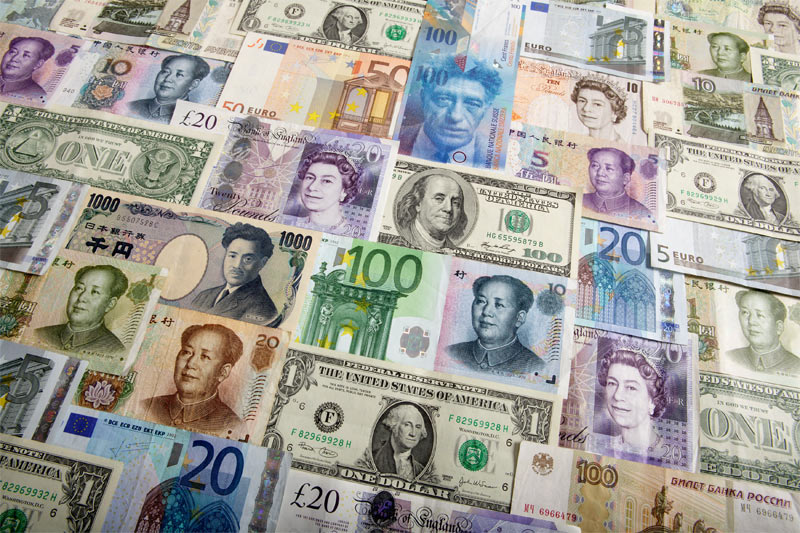Gold prices just lower; monthly gains on track
* Dollar gives up gains against most major currencies
* Sterling hits two-month high on Brexit deal hopes
* Aussie and kiwi on track for weekly losses
* Chinese rate easing seen less than some expected
By Tom Westbrook
SINGAPORE, Sept 20 (Reuters) - The dollar drifted lower on
Friday after central banks in Switzerland and the UK refrained
from following the Federal Reserve in cutting rates, and risk
appetites ebbed on caution about U.S-China trade talks.
Sterling GBP= hit a two-month high of $1.2566 against the
greenback, after European Commission President Jean-Claude
Juncker said he thought Brussels could reach a deal with Britain
to leave the European Union. The Swiss National Bank, the Bank of England and the Bank of
Japan all left their policies unchanged on Thursday. Their
currencies rose, with the Japanese yen JPY= and Swiss franc
CHF= both adding almost 0.2%, supported by safe-haven buying.
"What we're looking at is brewing central-bank divergence,"
said Chris Weston, head of research at brokerage Pepperstone
Group in Melbourne. "We're starting to see signs of that
resonating in currency markets."
The Australian and New Zealand dollars languished around
two-week lows following Thursday's slew of soft data, especially
an uptick in Australian unemployment that prompted a rush to
price in fresh rate cuts for October.
On Friday, the Aussie AUD=D3 edged higher to around
$0.6799, which is close to its lowest since Sept. 4, while the
New Zealand dollar NZD=D3 hit $0.6285, its weakest since Sept.
The Australian and New Zealand dollars were on track for
their steepest weekly slides in close to a month, as each has
given up more than 1%.
Economists at Citi on Friday joined Australia's major banks
in predicting an October rate cut. The dollar gave ground to the yen, buying 107.85, and to the
Swiss franc at 0.9910 per dollar. Against a basket of currencies
.DXY , the dollar edged lower to 92.223.
China's yuan CNY= firmed to 7.0843 per dollar after a trim
to a benchmark interest rate in China was smaller less dovish
than some market players expected.
Investors are also focused on U.S.-China trade talks in
Washington, aimed at laying the groundwork for high-level
discussions next month.
However, most traders are cautious. Few signs of progress
have emerged and with a wide gulf between both sides remaining,
the issue is weighing on the recent risk-on mood. "If you look at the Aussie dollar or renminbi it's faded,"
said Joe Capurso, senior currency strategist at the Commonwealth
Bank of Australia in Sydney.
""I think market participants are going to need something
concrete to really rally... at the moment there's just not
enough."
